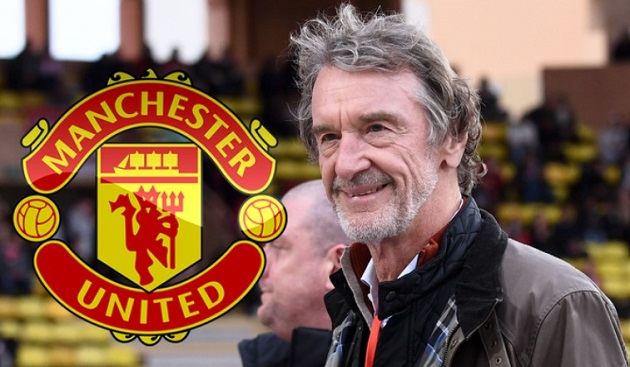There are enough favorable times, favorable conditions, and favorable people to rescue Man Utd from the Glazer family, but Sir Jim Ratcliffe only wants to buy back 25% of the team’s shares…
“Glazer family sells Man Utd” is a topic that has been simmering for the past year. In the latest developments, Sheikh Jassim bin Hamad Al Thani, a powerful Qatari businessman, decided to withdraw from the race to buy the “Red Devils”, meaning the only remaining candidate is billionaire Sir Jim Ratcliffe.
However, the owner of the giant chemical corporation INEOS made a rather unattractive offer for both the owners and Man Utd fans. Accordingly, Mr. Ratcliffe only bought a minority stake in Man Utd, expected to be about 25% of the shares. Note further, “minority” in financial language means less than 50%.
A holder of “minority shares” means owning less than 50% of the shares, meaning that they are not shareholders who control the business. Simply put, Ratcliffe wants to become a major shareholder at Man Utd, not the owner of this team.
The Man Utd Board of Directors will soon meet according to a long-arranged plan to make a decision. Sources from within Man Utd said that it will be difficult to reach an agreement soon because a series of problems may arise.

For example, will billionaire Ratcliffe buy class A or class B shares, what will happen to other shareholders or whether the Glazer family will “dilute” their shares…
It is important to know that to maintain power at Man Utd, the Glazer family divided Man Utd’s shares into 2 classes A and B, of which class B is 10 times more valuable than class A and is only available to members of this tycoon family. is held. Ratcliffe will not have to work hard, waste effort or spend too much money to gain equivalent power…
Explaining Ratcliffe’s decision to only become a minority shareholder in Man Utd, Jordan Gardner, an investor who once owned shares of the club Helsingor in Denmark, Dundalk in Ireland and Swansea City, the football team currently playing in the English First Division, gave his opinion: “In general, drip investment is the best way for investors to get into football teams without having to bear much responsibility. They will not be scrutinized.” and also a way to limit the risk of the investment amount.”
In September, Fenway Sports Group (FSG) sold a small stake in Liverpool to Dynasty Equity, a fund management company or private investment fund in the US. This deal is worth from 100 to 200 million USD, equivalent to 1.9% to 3.8% of the Anfield team’s shares.
At Newcastle United, Public Investment Fund (PIF), the Saudi Public Investment Fund, owns 80% of the shares, while PCP Capital Partners (10%) and the Reuben brothers (10%) hold the remainder. Silver Lake, another US private investment fund, owns 18% of shares in City Football Group, Man City’s parent company.
Meanwhile, Crystal Palace has 4 major shareholders: Steve Parish, Josh Harris, David Blitzer and John Textor. Some other teams in the Premier League also have many owners as a trend.
Tight financial resources as well as the increasing value of clubs make it more difficult to become a team owner by buying more than 50% of shares. “Not everyone is willing to accept the risk of buying a football team. So why not buy 20% of the shares? This is enough to have a seat on the board of directors.
Many people often pay attention to the percentage of shares, but actually they should focus on the powers that come with that number of shares. You may only own 10% of the shares but your influence is more than 10%!”, football finance expert Kieran Maguire gave his opinion in The Athletic newspaper.
Theo Ajadi, Assistant Director at Deloitte’s Sports Business Group continued: “It all depends on what is negotiated at the negotiating table. No two agreements are absolutely the same. There may be cases where shareholders someone has more power than the percentage of shares they own.
